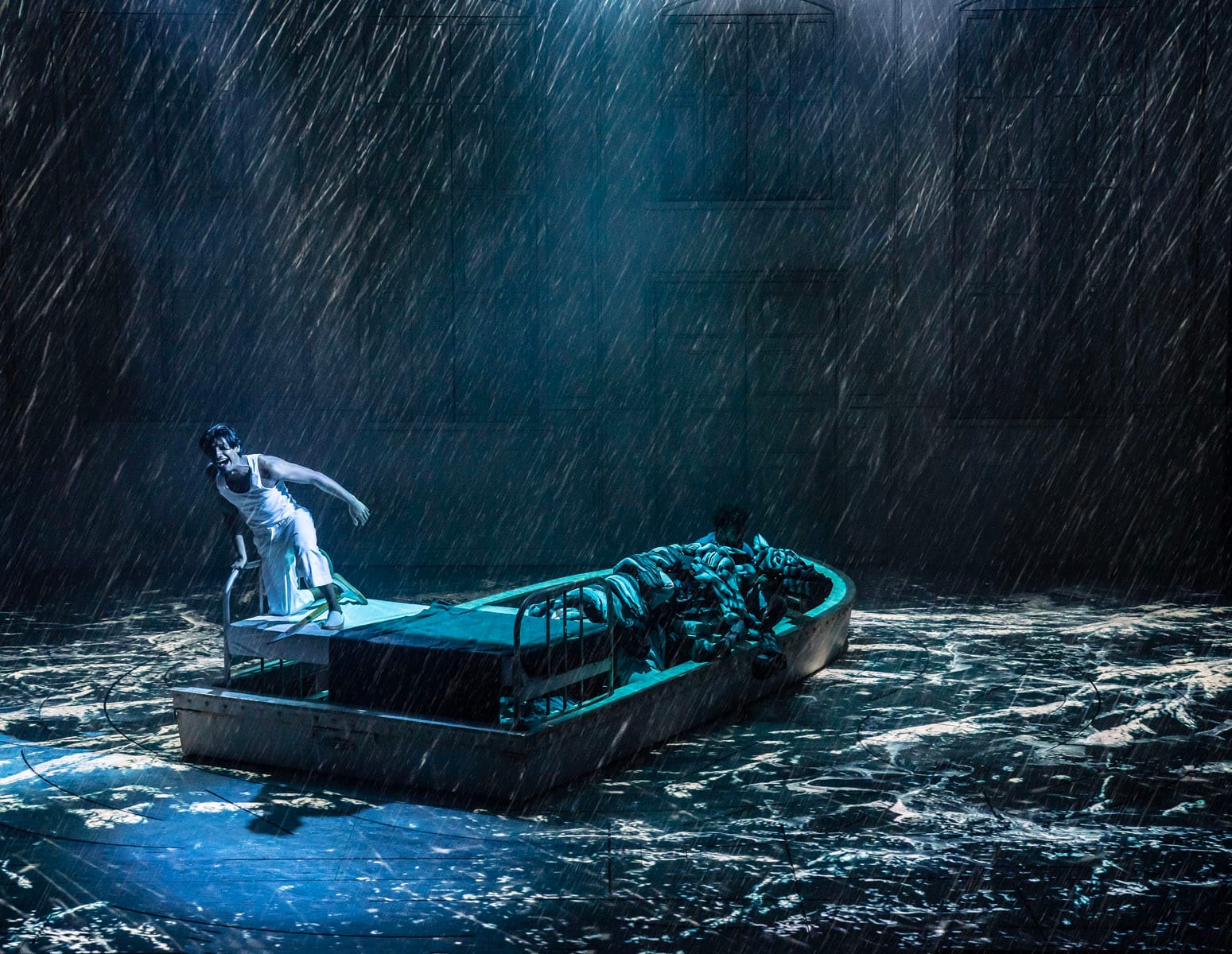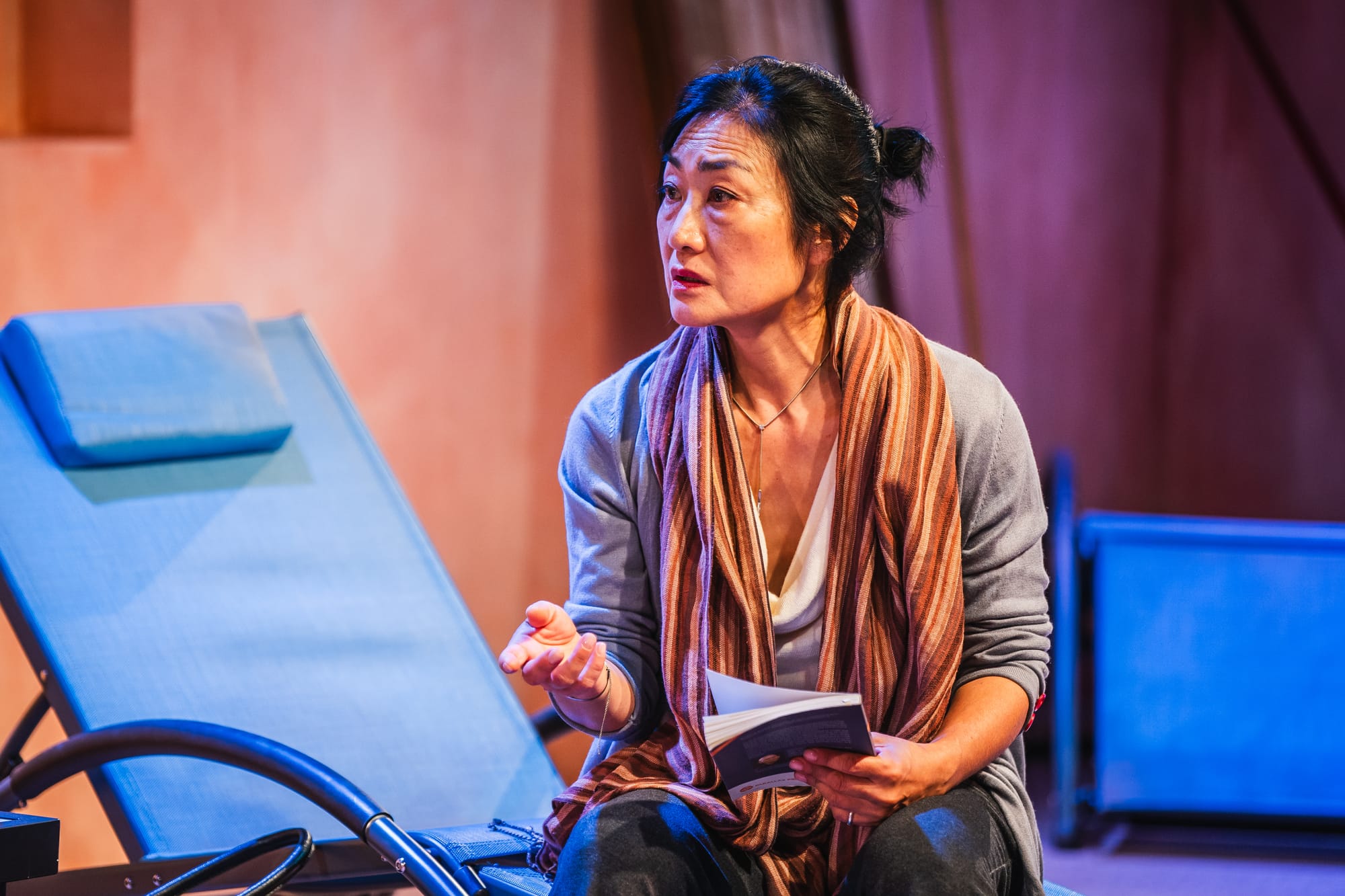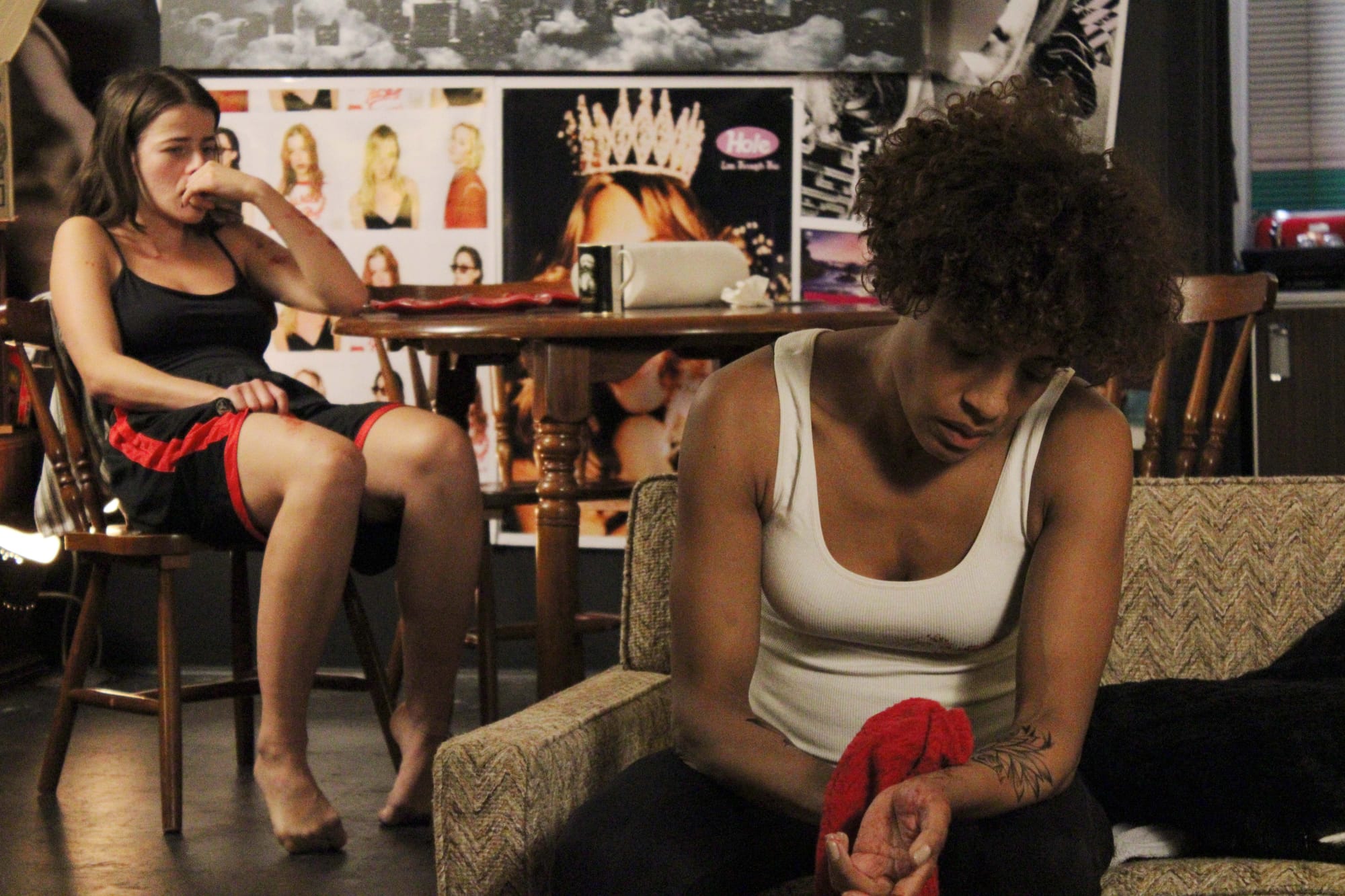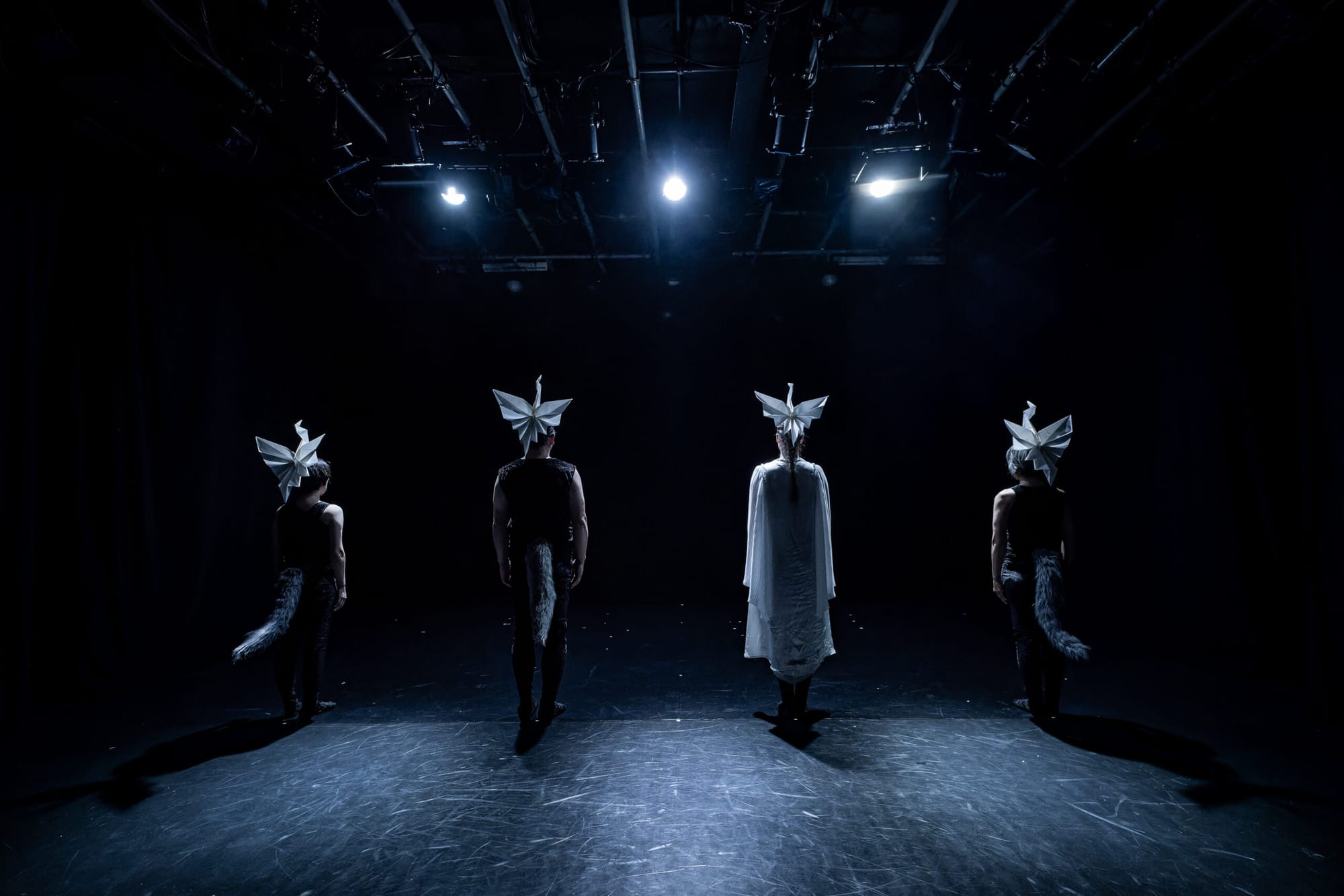Fall openings, Part 1: Puppet-tastic Pi, new Annie Baker and George F. Walker
The Toronto theatre season opens with a bang with new offerings from Mirvish, Coal Mine and promising indie company The King Black Box

Theatre companies used to wait until TIFF was over to open their shows. Now, judging from the spate of post-Labour Day productions, they clearly don’t care. Which makes sense. Why should the city’s cultural scene stop because of a few red carpets?
Speaking of movies, if you caught Ang Lee’s Oscar-winning film adaptation of Yann Martel’s Man Booker-winning novel Life of Pi, you’ll want to see the touring stage adaptation (Rating: ✭✭✭), which brings the tale to life with ingenuity, craft and heart. (I wrote about that adaptation here.)
Piscine Molitar “Pi” Patel is an Indian teenager who’s the sole survivor of a cargo ship that capsized in the middle of the Pacific Ocean en route to Canada. Playwright and actor Lolita Chakrabarti (Red Velvet) has cleverly taken an episode from late in Martel’s book to fashion a structural device to tell the story of how he endured 227 days on a lifeboat.
Recovering in a Mexico hospital, Pi must account for his actions to a Canadian government official and a Japanese transportation officer tasked with finding out what happened to — and on — the ship and lifeboat.
Pi’s narrative starts in his home in Pondicherry, where his family ran a local zoo. We get introduced to his loving parents, his brilliant but bossy older sister, eccentric, well-travelled uncle and clever auntie, the origin of his unusual name and his questing, philosophical spirit.
When civil war forces his family to pack up and emigrate to Canada, they board the cargo ship. A couple of days into the voyage, the ship encounters a storm and sinks. And according to Pi, he’s left alone with a hyena, an injured zebra, an orangutan and a fierce Bengal tiger as his uneasy, restless nautical companions.
What’s so special about Life of Pi is that it can be appreciated simply as an adventure tale of survival — endurance of the human spirit stuff. But without giving away too much, it’s also about the importance of storytelling and the imagination.
All of that becomes clear in Max Webster’s inspired direction. No sooner does Pi begin recounting his tale in the hospital room than the stage bursts to life with colourful, bustling market stalls, fluttering butterflies, loping animals and (later) shimmering fish.
The non-human creatures are rendered by ingenious puppetry, the larger ones — like the tiger, named Richard Parker — broken up into segments and requiring many people to capture the full range of movement and expression. (This is probably the only programme you’ll read where actors play roles like “Tiger Heart and Hind” or “Tiger Head.”)

The design elements are the stars of the show. Nick Barnes and Finn Caldwell designed the puppets, and Caldwell directed the puppets and their movement/expressions with such sensitivity you’ll be amazed. As Martel told me during our interview: “It’s like a card trick where you know how the magician did something — you’re even asked to participate in it — and it still impresses you.”
Andrzej Goulding’s video designs plunge you into the middle of the ocean (note: mezzanine seats and above will give you a better view of the roiling waves projected onto the stage than orchestra seats). And Tim Lutkin and Tim Deiling’s lighting and Carolyn Downing’s sound help evoke Pi’s real and imagined memories.
The performances are just as fine. Pi requires a huge range of emotional and physical work from a young actor, and Divesh Subaskaran, making his professional debut (!), is astonishing, fully present and graceful in the action sequences, winning in his family milieu and believable during the hospital interrogation as a shell-shocked survivor who might not be able to accept and process everything he’s gone through.
There are a couple of longueurs in the production, mostly having to do with the repeated shifts from Pi in the hospital to the more gripping flashbacks. There’s also a lot of detail about Pi’s history, but I think we need that in order to appreciate what happens later.
It’s telling that for all the stage wizardly onstage, some of the play’s most effective moments come when some of Pi’s family members appear to him during his bleak, lonely nautical voyage. Simple to make happen, but devastating in their emotional impact.
Life of Pi continues at the CAA Ed Mirvish Theatre, 244 Victoria, until October 6. See details here.
Infinite Life lessons

If the prospect of watching a group of people living with chronic pain sounds painful itself, think again. Annie Baker’s Infinite Life (Rating: ✭✭✭✭) is, like all of her plays, an utterly absorbing, frequently funny and profound look at ordinary people’s lives.
The setting is an alternative health retreat in Northern California, where six patients coping with chronic pain fast with water or juice. Most are repeat visitors, and have had success (or what they believe to be success) with the fasting regimen before, having turned to this clinic after traditional treatments have failed or given them news they didn’t want to hear.
I should point out that this is not a particularly fancy or upscale clinic — it seems to be in an industrial area, with its sun deck lounges overlooking a bakery. (A sick joke? Imagine fasting while the aroma of baked goods wafts through the air.)
The clients, most in their 60s and female, seem comfortable enough and come from across the country. But this is no satire about pampered baby boomers and extravagant spa treatments. The people here are in pain and are trying to ease it — through the fasting but also by talking with others, telling their stories and being away from their home routines.
Sofi (Christine Horne) is at least a decade younger than the other four women, and she’s a first-timer. Between scenes, she tells us how much time elapses between episodes — she’s very specific at first, and then, as the days pass by, more vague. This makes total sense, since with the fasting her attention to detail begins to falter.

Although each character has at least one monologue in which we get the outlines of their lives — Yvette’s (Kyra Harper) story about her history of illness is a standout, both funny and relatable — we learn the most about Sofi. But even with her we’re left to piece together her current life from what we overhear of her hushed phone calls with her husband, and voice messages left with a mysterious, complicit co-worker. We also get her explanations to the retreat folks, of course.
Baker is masterful at suggesting what’s going on during silences — awkward pauses, side-eye assessments, quick apologies. As we meet the women, and eventually one man, we understand that their chitchat — about everything from their illnesses to pornography to Daniel Deronda — is all public-facing. We’re not given access to them when they’re alone in their rooms; there’s surely some quiet weeping going on there.
While there’s inevitably a lack of momentum to the play — Baker’s works deal with the quotidian details of our lives — there’s always a subtle tension. And director Jackie Maxwell ensures we’re always engaged in these people’s lives.
It’s there in the way Eileen (Nancy Palk), the sternest and most quietly devout character in the play, walks to her chair with increasing pain each scene — when she’s absent for a long stretch we understand why. It’s also there in the flirtation between Sofi and Nelson (Ari Cohen), the sole male, who’s closer to her age, and the way the other women take it all in. It’s there in the way Elaine (Brenda Bazinet) proudly shows off pictures of her grandchildren. And it’s even there in one of the most innocuous-seeming scenes in the play, when flight attendant Ginnie (Jean Yoon) applies make-up, and Sofi looks on.
What’s so brilliant about the Coal Mine Theatre production (besides the direction and across-the-board fine performances) is that there are no easy lessons to take home. I’m not sure any of the characters learns anything from their or the others’ pain; Baker even explores the idea that it’s impossible to understand the pain of others — all we know is what we experience ourselves.
In a sense, then, it captures the American spirit of individualism, which has been intensified in the last decade by social media and the algorithms served up in our feeds. We see what we want to see, hear what we want to hear.
And yet, even within this bleak, uncaring universe, there’s room for grace and redemption. Near the end of the play, two characters truly communicate with each other, temporarily easing their pain. It’s a tender, human, humane and achingly beautiful moment. And its power could only come from live theatre.
Infinite Life continues at the Coal Mine Theatre, 2076 Danforth, until October 6 (extended). See details here.
New Walker play packs a punch

You know that a play and production are powerful when you realize you’ll probably never be able to walk through a neighbourhood again without thinking about its characters.
That’s the case with Girls Unwanted (Rating: ✭✭✭✭), the new play written and directed by George F. Walker and presented by the relatively new The King Black Box in Parkdale.
The space itself, a third-floor walkup above a Popeyes across from Liberty Village, is a nondescript, narrow venue that seats maybe 40 people. It’s intimate and in-your-face, as if we’re eavesdropping on the characters’ conversations. That only adds to the production’s feeling of authenticity.
It turns out we’re in a downtown halfway house, where residents Hanna (Ziggy Schulting), Kat (Alexandra Floras-Matic) and Ash (Marline Yan) live under the tired, exhausted eyes of social worker Maddy (L.A. Sweeney), who’s a former resident herself.
Two things happen early on. A young man named Max (Louis Akins) enters and tells Kat that he’s her brother. Kat was given away for adoption, but he was raised by their parents, and he’d like her to visit their parents because their mother is ill. Then Maddy gets a phone call saying that her colleague, Victor, has been found dead. Victor, it turns out, had at some point lost all his ideals and crossed professional boundaries with the residents. Was he murdered? If so, who did it — and why?
These days, Walker’s work isn’t produced much on larger Toronto stages, which is a shame. Few writers know how to set up plot, situation and character so quickly, and even fewer empathize with the socially and economically marginalized without romanticizing them.
Watching the young women in this play — each one with a unique history — I was reminded of Denise from his play Problem Child. They’ve got the same desperation, are capable of making the same mistakes and in some ways are deeply misunderstood.
Walker establishes the chaotic relationship between Hanna and Kat early on — the play’s opening moment, featuring Hanna’s entrance, is both horrific and funny. He’s subtler with revealing Ash, who’s the most scarred of the three, having survived a harrowing situation and existing without much guidance or counselling, only medication.
In breakthrough performances that feel deeply lived in, all three younger women are distinct and memorable. Sometimes Walker has them doing too much — at points they’re climbing over the furniture — but it’s always watchable and in character.
Akins and Sweeney are also good, the one adding gentle comic relief, the other imparting a sense of weariness and tempered care. Madison Caan’s costumes sensitively tell us a lot about the characters. As I suggested at the top, I’ll be thinking about these people for a while.
I grew to love Sophie Ann Rooney’s production design — with its main entrance and a little kitchen area in the back expanding the world of the play and making us feel like we’re flies on the wall of the house. The posters, bric a brac and unmatched furniture all feel authentic. And late in the show I noticed a corner that read “Lost and Found.” Fitting words.
I can’t wait to see what this promising company does next.
Girls Unwanted continues at The King Black Box, 1224 King West, 3rd floor, until September 29. See details here.

Mukashi, Mukashi
Congratulations to Tori, who won a pair of tickets to Mukashi, Mukashi, a co-production between Toronto’s CORPUS and Japan’s The Kio Company. The piece, an exploration of the Wolf and Crane from Western and Japanese folklore, runs September 24 to 29 at the Theatre Centre’s Franco Boni Theatre, 1115 Queen West. See details here.
